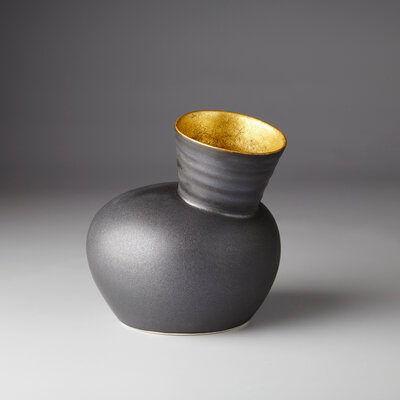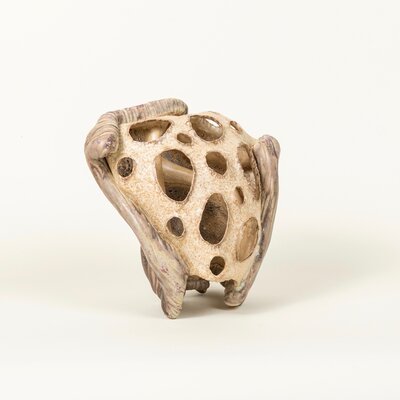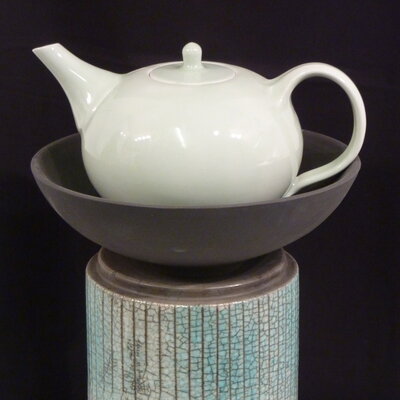This course is about exploring drawing and mark-making using plaster and slips (liquid clays) to create wall pieces and tiles. The emphasis will be on line, surface qualities, texture and pattern.
You will initially work on smooth plaster blocks to carve and draw into to create moulds for your slip cast drawings, exploring different types of mark-making using a range of tools and implements. The process has strong associations with both intaglio and relief printmaking. You will cast your drawings in semi porcelain to make wall pieces and tiles. The technique and materials give scope for very delicate and finely detailed drawings to larger rougher outcomes.
Plaster drawing moulds serve as the vehicle to transfer drawings to clay through the casting process and can also exist as interesting works in their own right. Drawings carved into the plaster can also be used as printing blocks to make fine black and white prints using oil-based inks on Japanese paper, resembling woodcuts and lino prints and capable of communicating very fine graphic detail.
You will follow very structured teaching through specific exercises which can gradually give way to more individual explorations with tutor support and guidance. This course is suitable if you have an interest in drawing and mark-making and if you enjoy working within the disciplines of ceramics, print, textiles, glass and metals and any area concerned with surfaces. You need to have enough hand strength to draw into plaster blocks with etching needles and similar tools.
Ceramic drawings and tiles will be fired for collection after the course.
Included
Most materials required for the specific project set by the tutor or shared by the group, including:
- Paper
- Printing ink
- Ceramic colours
- Casting slip
- Clay
- Potter’s plaster
- Firing costs – large work in size and quantity may be charged extra.
What students need to bring
- bring sketchbooks and examples of your work if you wish but This is not essential.
- a range of paintbrushes, pencils and a general art kit if you have it, otherwise essential Items can be purchased from the shop on the first day.
Available to buy
Available from shop:
- Paintbrushes
- Lino or woodcutting tools (which can be used for carving into plaster and are likely to be made blunt, so the replacable blades and handle are best)
Available from tutor:
- Additional ceramic colours and extra casting slip for work of a quantity that exceeds what is included in the course fee
Additional information
Firing and glazing options:
-
Leave a selection of raw, finished pieces for biscuit firing at the College (allowing four weeks for your work to be biscuit fired) and available for collection within six months.
-
Take away your unfired work for firing and glazing elsewhere.
Please wear appropriate clothing/aprons for the workshop or studio, this includes stout covered footwear (no sandals or open toes).
Arrival day - first date of course
Residential students can arrive from 4pm, non-residential students to arrive by 6.45pm for registration
Student welcome, followed by dinner: 6.45pm (dinner included)
Teaching session: 8pm-9pm (attendance is essential)
Daily timetable
Course teaching: 9.15am-5pm
Morning session: 9.15am-12.45pm including coffee/tea break
Lunch break: 12.45pm-2pm (lunch included)
Afternoon session: 2pm-5pm including coffee/tea break
Teaching finishes: 5pm
Evening working: students may have access to workshops until 9pm, but only with permission from the tutor and provided any health and safety guidelines are observed.
Departure day - last date of course
Course teaching: 9.15am-3pm (lunch included)
Teaching finishes: 3pm
Residential students will need to check out of rooms by 10am.
Please note, the tutor may make slight variations to the daily timetable as required.





